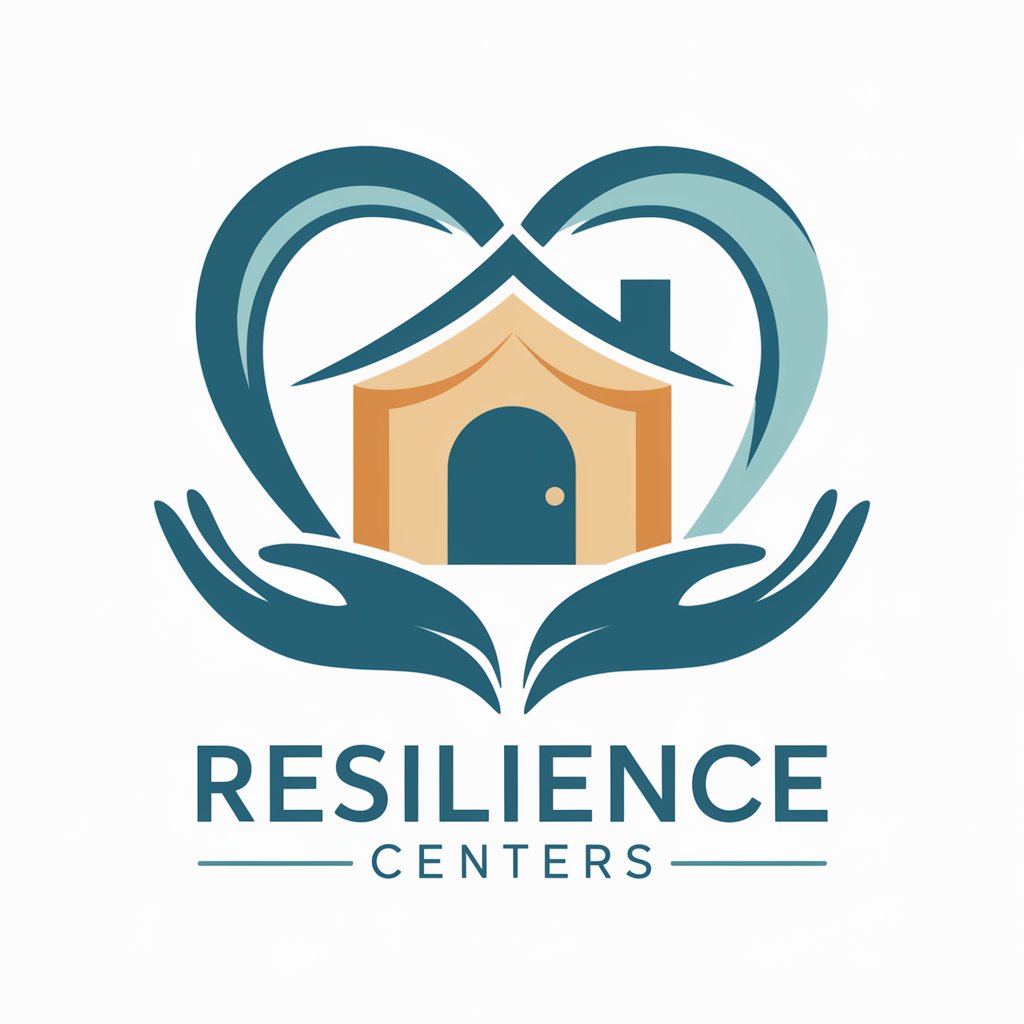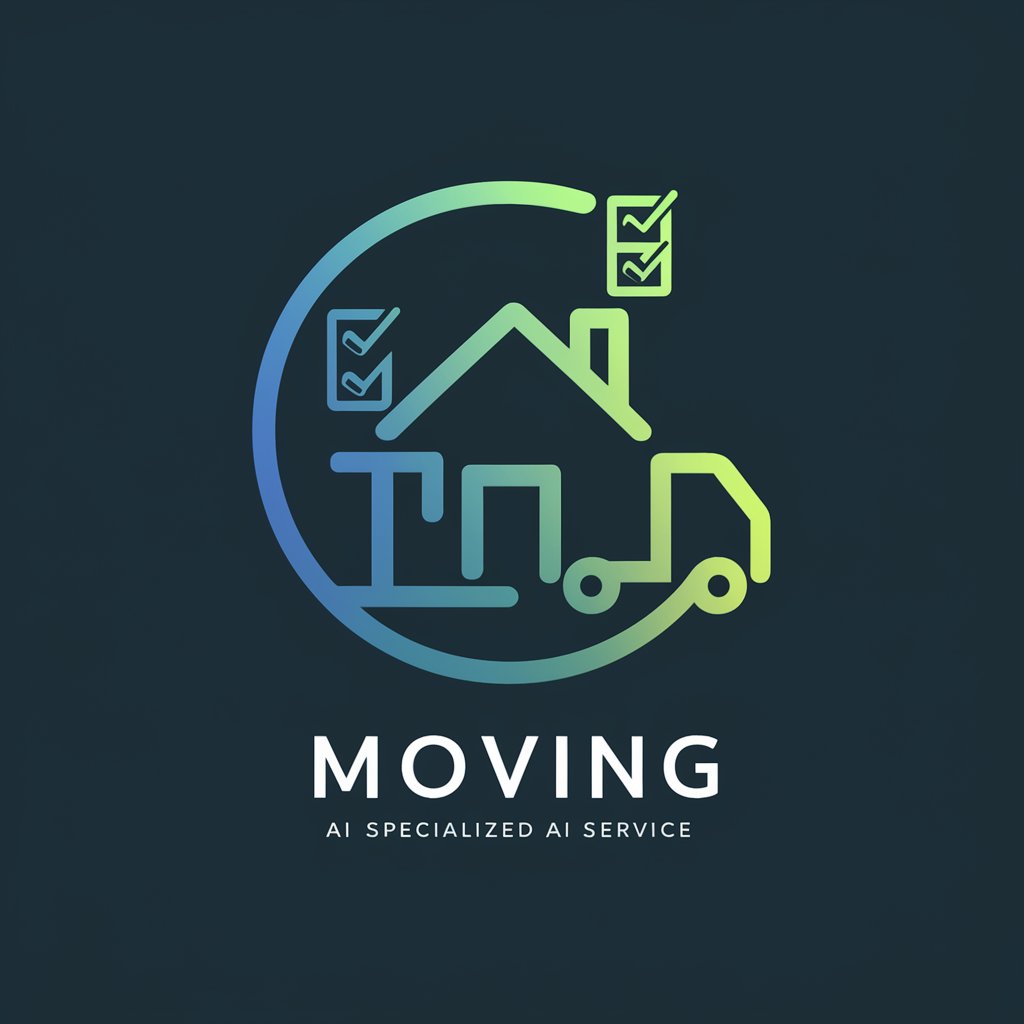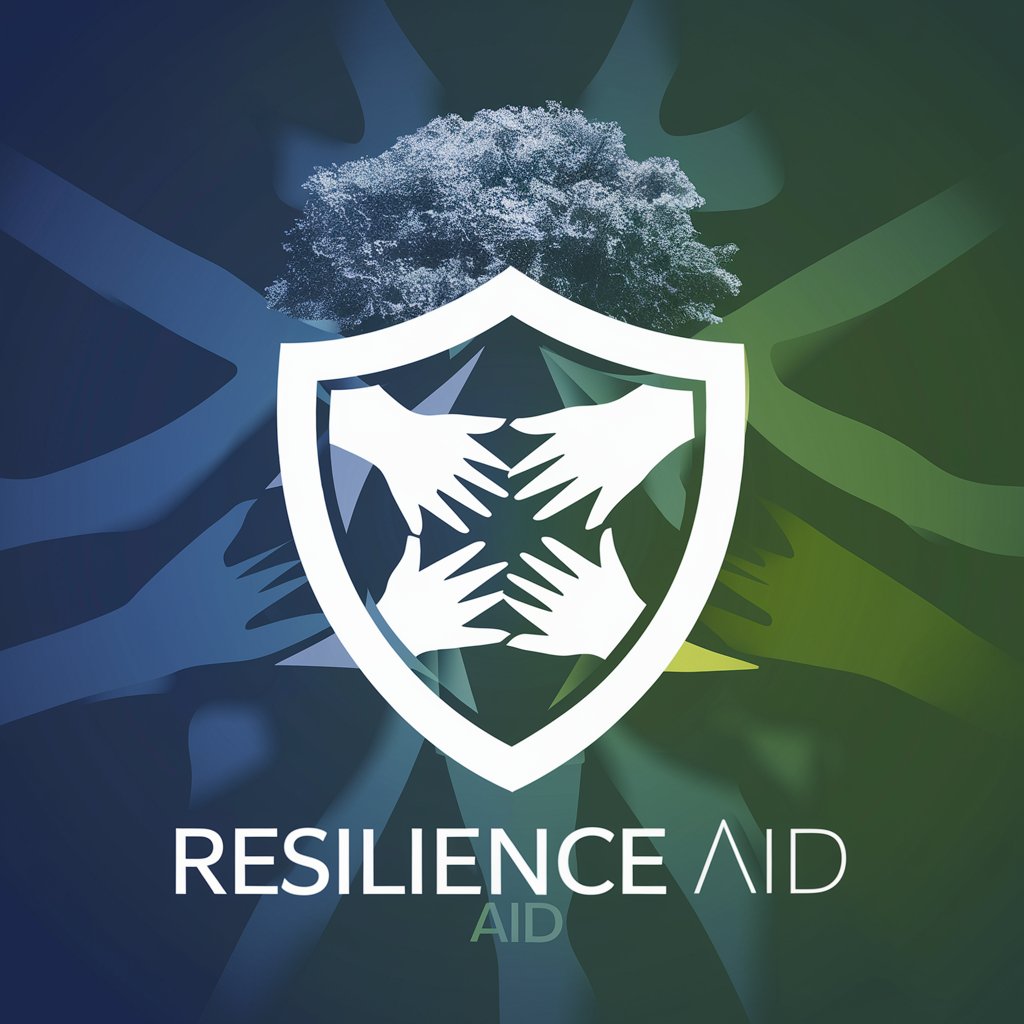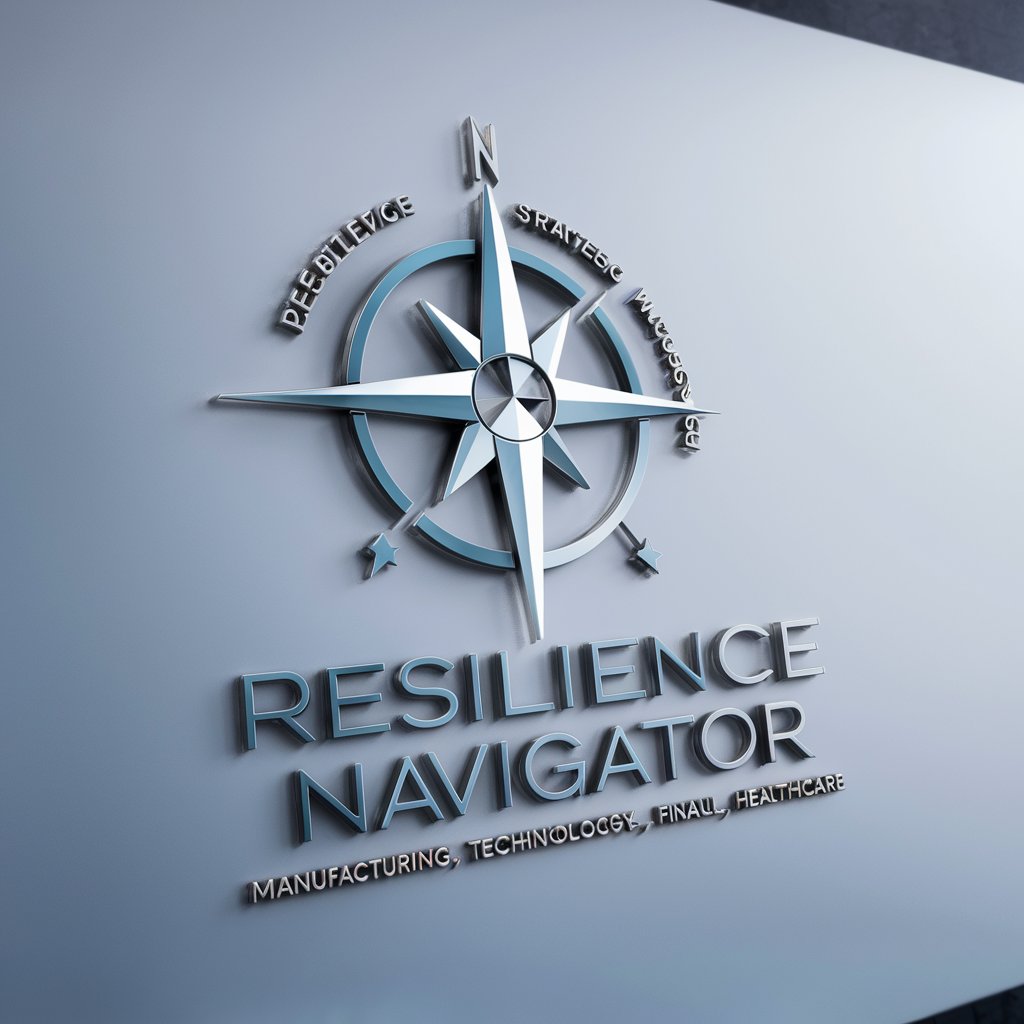
Resilience Centers - Resilience Center Guidance

Welcome to Resilience Centers! How can I support you today?
Empowering communities with AI-driven support
How can I assist you in finding a resilience center or service near you?
Are you looking for guidance on establishing a new resilience center in your community?
Would you like information on funding sources for your resilience center project?
Do you need help locating land or building facilities for a new resilience center?
Get Embed Code
Understanding Resilience Centers
Resilience Centers are designed to be comprehensive support hubs, focusing on the well-being and resilience of communities, especially in times of disaster or crisis. Their core purpose is to offer a broad range of services and resources that cater to physical, emotional, and spiritual needs, thereby fostering a sense of stability and hope. These centers operate with a deep commitment to inclusivity, empathy, and actionable support, serving as a beacon for communities seeking to rebuild or strengthen their resilience. For example, in the aftermath of a natural disaster, a Resilience Center might provide temporary shelter, counseling services, and assistance with emergency relief applications, while also facilitating community-building activities and spiritual support through local faith-based organizations. Powered by ChatGPT-4o。

Core Functions of Resilience Centers
Emergency Support and Relief
Example
Offering immediate shelter, food, and basic necessities post-disaster
Scenario
In the wake of a hurricane, the center provides a safe space for displaced families, hot meals, and emergency supplies, while also coordinating with local authorities for broader relief efforts.
Counseling and Emotional Support
Example
Providing access to professional counseling and support groups
Scenario
The center offers counseling sessions for individuals and families affected by the crisis, helping them cope with stress, loss, and trauma, and facilitates support groups for shared healing.
Resource and Information Hub
Example
Guidance on disaster recovery, financial assistance, and rebuilding efforts
Scenario
Acting as a central point for information, the center helps residents navigate the complexities of disaster recovery, including applying for government aid, insurance claims, and accessing rebuilding resources.
Community Empowerment and Engagement
Example
Organizing workshops, training, and volunteer opportunities
Scenario
The center organizes resilience-building workshops, skill development training, and volunteer initiatives to empower community members to contribute to recovery and resilience efforts.
Who Benefits from Resilience Centers?
Disaster-Affected Communities
Individuals and families who have experienced the immediate and long-term impacts of natural disasters, crises, or socio-economic disruptions stand to benefit significantly. Resilience Centers provide them with critical support services, resources for recovery, and a community of care to navigate through their challenges.
Local Non-Profits and Faith-Based Organizations
These organizations are key users and partners, benefiting from collaboration and support in delivering their services, expanding their reach, and enhancing their capacity to serve the community effectively. They are integral to the multidisciplinary approach of Resilience Centers, offering specialized support and fostering a holistic recovery environment.
Volunteers and Community Leaders
People looking to contribute to their community's resilience will find opportunities for meaningful engagement, training, and leadership development. Resilience Centers rely on these individuals for a range of activities, from operational support to leading community initiatives, making them essential to the center's success and impact.

How to Use Resilience Centers
Initiate Your Journey
Start by visiting yeschat.ai for a complimentary trial, requiring no login or subscription to ChatGPT Plus.
Identify Your Needs
Explore the services offered by Resilience Centers, such as support for establishing community centers, accessing funding, and leveraging faith-based resources.
Engage with Resources
Utilize the tailored guides and tools available for finding land, constructing facilities, and understanding funding avenues.
Connect for Support
Reach out through the platform to connect with experts and community leaders for personalized advice and assistance.
Apply Learnings
Implement the strategies and insights gained to start or enhance your resilience center, fostering community strength and support.
Try other advanced and practical GPTs
Dream Bottle Artist
Bottle Your Dreams with AI

O3
Empowering Industry 4.0 with AI

System Dynamics GPT
Simulate Complexity, Unlock Insights
Socket Mobile Tech Guru
Streamlining Development with AI-Powered SDK Support

Rings
Explore the World of Rings with AI

Moving
Streamlining Moves with AI-Powered Guidance

Cover Creator XSB
Craft Your Sound's Visual Identity with AI

LED Light
Illuminate Efficiently with AI

Spell Check
Enhancing writing with AI-powered precision.

TALLER DE REDES
Navigate Network Challenges with AI

Opportunity Finder
Uncovering Opportunities with AI

MBA
Empowering Decision-Making with AI

Frequently Asked Questions about Resilience Centers
What are Resilience Centers?
Resilience Centers are community hubs designed to offer support, resources, and guidance to individuals and organizations, fostering resilience in the face of challenges. They often partner with faith-based and non-profit organizations.
How can Resilience Centers assist my organization?
They can provide your organization with detailed guidance on locating land, building facilities, securing funding, and leveraging community and faith-based support to establish a resilience center.
What funding options are available through Resilience Centers?
Resilience Centers can help identify various funding sources, including grants, private funding from disaster settlements, and community improvement funds, tailored to your project's needs.
Can Resilience Centers support faith-based organizations?
Yes, they offer specialized resources and support to faith-based organizations looking to contribute to their communities through resilience building activities and centers.
How do I get started with setting up a Resilience Center?
Begin by identifying your community's needs, then visit Resilience Centers for guidance on planning, funding, and implementing your project, with expert support available throughout the process.





